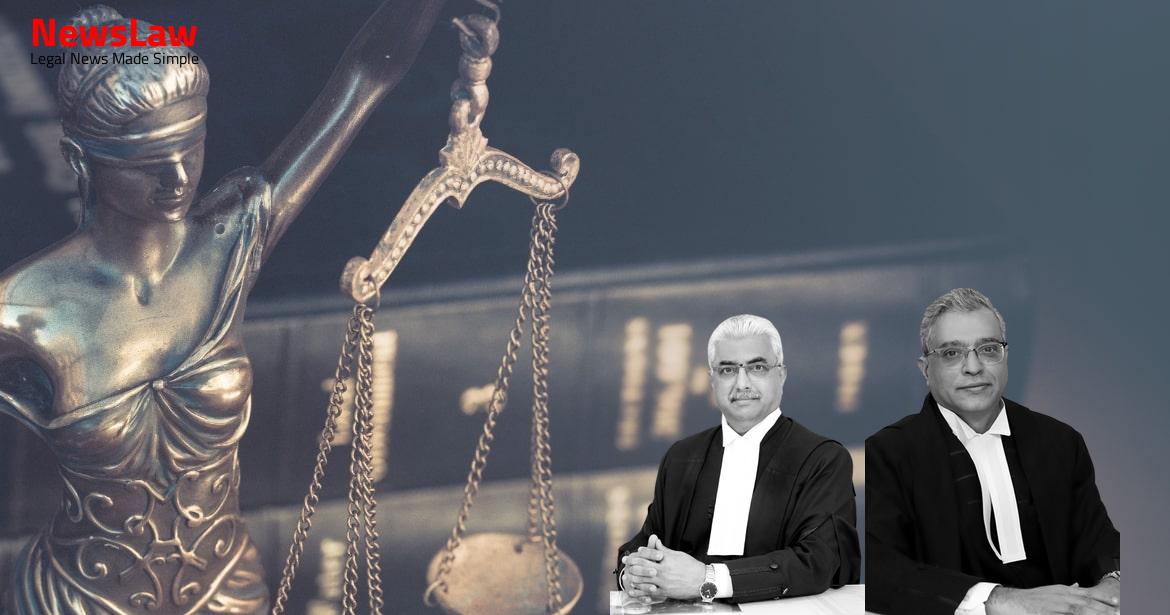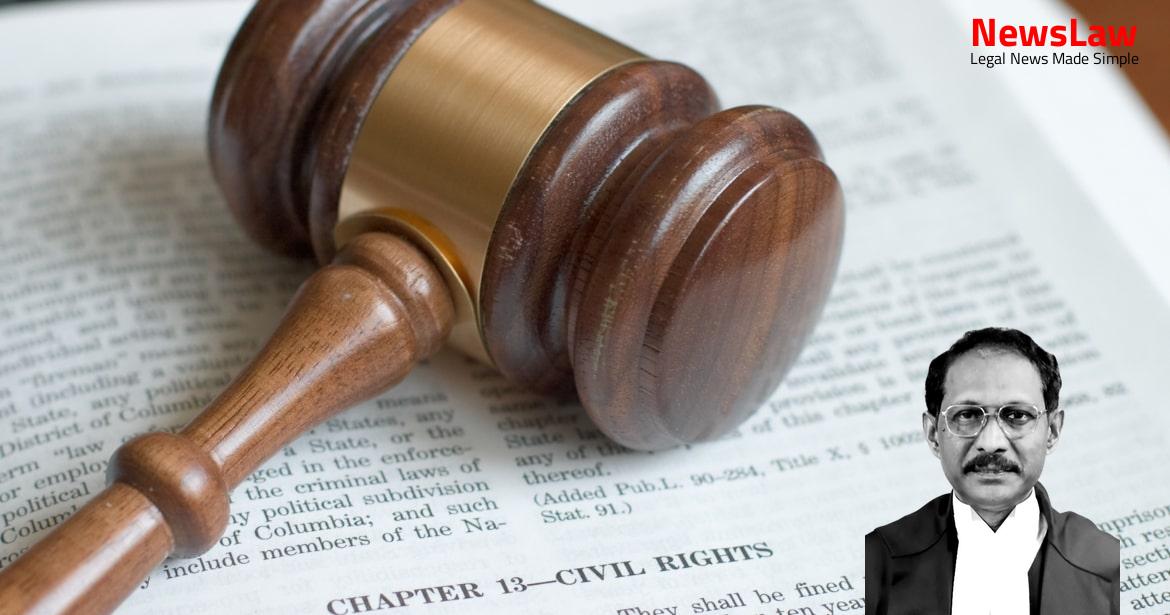Respondents And With Civil Appeal No 6694 of 2022……………………………………………………………………………………………………………… By a judgment dated 18 October 2019, a Division Bench of the High Court allowed the petition and directed that the State of Uttar Pradesh must purchase Ayurvedic medicines by adopting a transparent process after inviting tenders. The State of Uttar Pradesh and IMPCL instituted proceedings under Article 136 of the Constitution against the judgment of the High Court. Paragraph 3(ii) of the Operational Guidelines of NAM provides that 75 percent of the admissible assistance will be provided as grant-in-aid by the Central Government while the remaining 25 percent must be met by the States, except in the North- Eastern States where the assistance by the Centre and the States shall be in the ratio of 90:10. 5
Also Read: https://newslaw.in/case-type/criminal/alleged-misuse-of-official-position-courts-legal-analysis/
On 30 October 2017, the first respondent made a representation to the Principal Secretary to either place direct purchase orders for the supply of Ayurvedic medicines to it according to the existing government policy or to initiate a tender process for the purchase. The appellant was allowed to purchase drugs from IMPCL to the extent of the payment already made since for the year 2019-20, the purchase order for medicines to the extent of 50 percent had already been given to IMPCL and a full payment of Rupees 11 PART A crores was made.
There is nothing on the record to show that IMPCL is the only entity producing quality drugs; (v) No comparison on the quality of medicines can be made unless tenders are invited from IMPCL and other PSU Pharmacies under the State Governments and co-operative societies; and (vi) At least 50 percent of the grant-in-aid for the procurement of Ayurvedic medicines must be used only after tenders are invited amongst the establishments referred to in paragraph 4(vi)(b) of the Operational PART B Guidelines.
Further, IMPCL is the only government manufacturing company for Ayurvedic medicines with its own certified drug testing laboratory; (iii) On 16 July 1994, the Government of India issued an order where it had resolved that Ayurvedic medicines cannot be purchased through tenders because (a) there is a wide variation in the prices of raw materials required for making drugs and the cost of the drug will vary based on the quality of the raw material used; and (b) it is not possible to test the exact composition of drugs in terms of the raw materials and their quality; PART B (iv) The Ministry of AYUSH, Government of India has on various occasions recommended purchasing Ayurvedic medicines directly from IMPCL; (v) Procurement may be through tender only where the state proposes to dispose of property.
The phrase ‘ atleast’ in paragraph 4(vi)(b) only provides a minimum benchmark for procurement and does not prescribe an upper limit; and (viii) A combined reading of paragraphs 4(vi)(b) and 4(vi)(c) elucidates that the states have the discretion to procure medicines from IMPCL or any other PSUs, and pharmacies under the State Government and cooperatives. The usage of the term ‘or’ indicates that all establishments mentioned in the paragraph are equally eligible to supply medicines as much as IMPCL; and (b) While paragraph 4(vi)(b) does not stipulate that the procurement must be through a tender process, it does not mean that the process of tender cannot be read into the provision. Therefore, procurement must be by a fair process in which all the eligible establishments are granted an opportunity to secure the procurement order; (iii) It is an established principle that state largesse must be distributed by public auction save in exceptional situations having regard to the nature of the PART C trade or where no reasonable substitute exists.
Paragraph 4(vi)(c) states that the remaining grant-in-aid may be used for procuring medicines from other Good Manufacturing Practices (GMP) compliant units having valid manufacturing licenses. PART C 3.1 State Largesse: conflation of power and duty 11 The welfare State plays a crucial role in aiding the realisation of the socio- economic rights which are recognised by the Constitution. On the other hand, the respondent contends that merely because the Operational Guidelines do not prescribe the method of procurement, unbridled discretion cannot be given to the executive to procure drugs through ‘nomination’. State of Kerala, a Constitution Bench of this Court held that it is open to the Government ‘to choose a person to their liking, to fulfil contracts which they wish to be performed.’ The Court observed that when one party is chosen over another, the aggrieved party cannot claim the protection of Article 14 since the government has the discretion to choose with whom it will contract. This Court held: PART C 3.2.1 Tender: a constitutional requirement?
17
In Natural Resources Allocation, in re Special Reference No 1 of 2012, a Presidential Reference was made in the backdrop of the decision in Centre for Public Interest Litigation (supra) where this Court had held that the method of first-cum-first serve used to allocate 2G radio spectrum was arbitrary and illegal.
This Court held that the action of the Government of Pondicherry was justified because on account of historical, political and other reasons, the Union Territory is not yet industrially developed and thus, entrepreneurs have to be offered attractive terms to persuade them to set up industries.
Noting that it is necessary to maintain transparency in the grant of public contracts, the Court ruled that the State must give contracts only by tender and not through private negotiations. When the government deviates from the general rule of allotting a contract without following a transparent process such as inviting tenders, it has to justify its actions on the touchstone of the principles postulated in Article 14 : PART C 20 Inviting tenders and conducting public auctions are considered to be preferred methods of allocation for two reasons: firstly procurement can be made at the best price; and secondly, allocation is through a transparent process.
22 The following principles emerge from the discussion above: (i) Government action must be just, fair and reasonable and in accordance with the principles of Article 14; and (ii) While government can deviate from the route of tenders or public auctions for the grant of contracts, the deviation must not be discriminatory or arbitrary. On 9 August 2016, the Ministry of AYUSH issued a circular responding to the clarification sought by the States on the procurement of AYUSH medicines from IMPCL. While stipulating that the procurement of medicines is the ‘prerogative’ of the State Government, the notification stated that the following guidelines have to be observed: (i) Essential drugs have to be procured from the Essential Drugs List (EDL) published by the Ministry of AYUSH; (ii) at least 50 percent of the grant-in-aid has to be used to procure medicines from IMPCL or other Central/State PSUs’ or pharmacies under the State-Governments and Co-operatives; (iii) The remaining grant-in-aid may be used for procuring the medicines from other units that have valid manufacturing licenses; and PART C (iv)
25 Thus, the letter which was issued by the Union Ministry of Health and Family Welfare in 1994 stating that Ayurvedic medicines must be procured only from IMPCL is superseded by the latest notification issued by the Ministry of AYUSH in 2019 which stipulates that paragraph 4(vi)(b) of the Operational Guidelines does not differentiate between the units mentioned in the provision.
Also Read: https://newslaw.in/case-type/civil/courts-analysis-on-compliance-with-resolution-plan-conditions/
The provision does not create a gradation amongst the manufacturing units mentioned in the paragraph. The ministry of Health and Family Welfare dated 16 July 1994 is extracted below: PART C 27 On 8 May 2008, the Government of India issued another memorandum stipulating that the medicines produced by IMPCL are according to classical texts and of assured quality. In fact, paragraph 4(vi)(b) states that 50 percent of the grant-in-aid shall be used to purchase medicines from the units mentioned in the paragraph “keeping in view the need for ensuring quality of AYUSH drugs and medicines.” Besides IMPCL, which is an establishment of the Government of India, paragraph 4(vi)(b) includes other establishments of the State Governments or co-operative societies. However, there is no material to substantiate the claim that IMPCL is the only establishment which manufactures ‘quality’ medicines to the exclusion of other establishments mentioned in paragraph 4(vi)(b).
33 Applications for intervention were filed by the Federation of AYUSH drugs Manufacturers, the President and Secretary of the Federation, the investor of “S- compound”, and a small-scale manufacturing unit engaged in the production of Ayurvedic Medicines. In view of the judgment in Caterpillar India (supra), the Union Cabinet by an order dated 21 November PART C 2007 adopted a policy whereby purchase preference to Central Public Sector Enterprises was terminated from 31 March 2008; and (ii) The Director, Central Vigilance Commission issued a circular on 9 November 2009 to review the Purchase Preference Policy for the products and services of Central Public Sector Enterprises in view of the judgment in Caterpillar India Pvt.
Case Title: M/S INDIAN MEDICINES PHARMACEUTICAL CORPORATION LIMITED (IMPCL) Vs. KERALA AYURVEDIC CO OPERATIVE SOCIETY LTD. (2023 INSC 7)
Case Number: C.A. No.-006693-006693 / 2022



